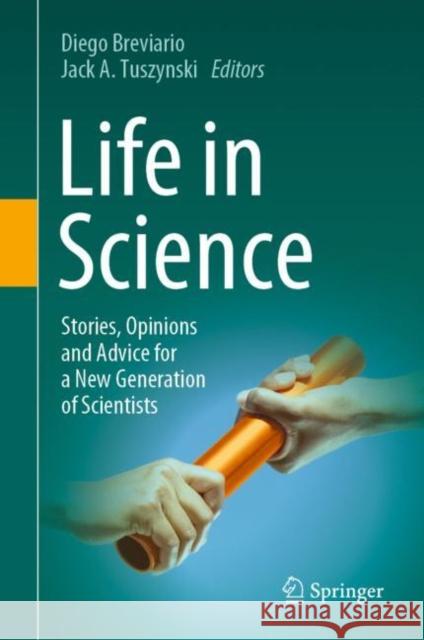Life in Science: Stories, Opinions and Advice for a New Generation of Scientists » książka
Life in Science: Stories, Opinions and Advice for a New Generation of Scientists
ISBN-13: 9783031237164 / Angielski / Twarda / 2023 / 266 str.
Life in Science: Stories, Opinions and Advice for a New Generation of Scientists
ISBN-13: 9783031237164 / Angielski / Twarda / 2023 / 266 str.
(netto: 344,21 VAT: 5%)
Najniższa cena z 30 dni: 327,68
ok. 22 dni roboczych
Dostawa w 2026 r.
Darmowa dostawa!
This book is a collection of stories, reflections and advice written by proficient scientists. They address the question of what doing science means to them, and describe attitudes and working practices that have proved effective and rewarding. The book is aimed in particular at young people who are attracted by science or already undertaking undergraduate studies, and who are considering making science their long-term profession. It will also be helpful and revealing to early-career scientists who are searching for their own best route to success. The book serves as a platform for experienced scientists to describe their original inclination, how that subjective disposition found its expression in their way of doing science, whether their expectations were met, and what achievements they can claim. But it is not restricted to success: contributors also share details of the limitations and failures they have encountered. Last but not least they describe how they see science now, how they think it will be in the near future, and what advice they would give to the their much younger colleagues. Readers will appreciate the diversity of the individual paths shaped by different education, motivation, ambition, inclination, intuition, feeling, belief and eligibility. At the same time the stories confirm that science relies on a translation of this subjective level into an objective level, one that is shared and accepted by the international scientific community, and whose results are produced with a commonly accepted and fully rational scientific method of investigation.
This book is a collection of stories, reflections and advice written by proficient scientists. They address the question of what doing science means to them, and describe attitudes and working practices that have proved effective and rewarding. The book is aimed in particular at young people who are attracted by science or already undertaking undergraduate studies, and who are considering making science their long-term profession. It will also be helpful and revealing to early-career scientists who are searching for their own best route to success. The book serves as a platform for experienced scientists to describe their original inclination, how that subjective disposition found its expression in their way of doing science, whether their expectations were met, and what achievements they can claim. But it is not restricted to success: contributors also share details of the limitations and failures they have encountered. Last but not least they describe how they see science now, how they think it will be in the near future, and what advice they would give to the their much younger colleagues. Readers will appreciate the diversity of the individual paths shaped by different education, motivation, ambition, inclination, intuition, feeling, belief and eligibility. At the same time the stories confirm that science relies on a translation of this subjective level into an objective level, one that is shared and accepted by the international scientific community, and whose results are produced with a commonly accepted and fully rational scientific method of investigation.











